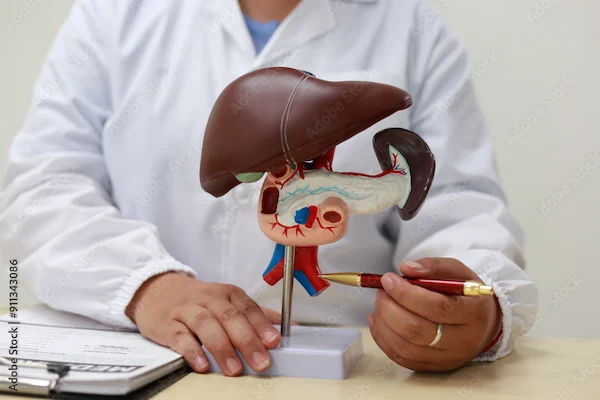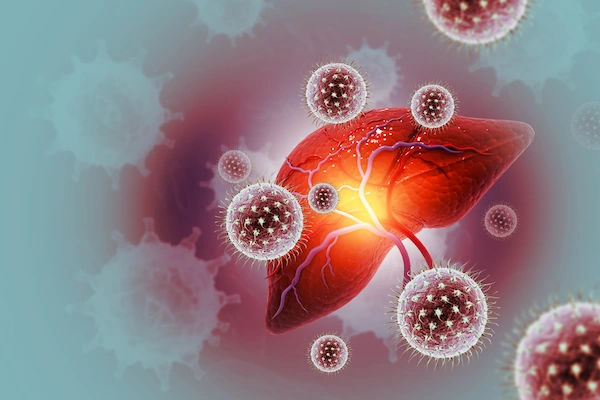Your Guide to Hepatitis Prevention: Causes & How to Avoid It
Learn how to prevent hepatitis with this comprehensive guide. Discover causes, transmission routes, vaccination, hygiene practices, and lifestyle tips to protect your liver health.


Introduction
Hepatitis, an inflammation of the liver, is a significant global health concern affecting millions. While the word itself can sound alarming, the good news is that a vast majority of hepatitis cases are preventable. Understanding what leads to hepatitis is the first and most crucial step toward effective prevention. This guide demystifies the different types of hepatitis—A, B, C, D, and E—by exploring their distinct causes and transmission routes. More importantly, it empowers you with actionable, evidence-based strategies to protect yourself and your loved ones. From the power of vaccination to simple daily hygiene practices, we will cover the essential steps you can take to significantly reduce your risk and maintain a healthy liver for years to come. Knowledge is your best defence, and this article is your roadmap to hepatitis prevention.
Understanding Hepatitis: More Than One Enemy
Before we can prevent hepatitis, we must understand what we're up against. Hepatitis isn't a single disease but a group of viral infections that target the liver, each with unique characteristics and modes of transmission.
What is Hepatitis? The Liver's Role Explained
- Your liver is a vital organ responsible for filtering toxins from your blood, processing nutrients, producing bile for digestion, and regulating blood clotting. Hepatitis, meaning "inflammation of the liver," disrupts these critical functions. This inflammation can be acute (short-term) or chronic (lasting more than six months), with chronic forms potentially leading to severe complications like cirrhosis, liver failure, or cancer.
The Alphabet Soup: Breaking Down Hepatitis A, B, C, D, and E
The five main types are categorised by the virus that causes them:
- Hepatitis A (HAV): Often mild and acute, spread through contaminated food or water.
- Hepatitis B (HBV): Can be acute or chronic, transmitted through blood and other bodily fluids.
- Hepatitis C (HCV): Primarily chronic, spread mainly through blood-to-blood contact.
- Hepatitis D (HDV): A defective virus that only infects people who already have Hepatitis B.
- Hepatitis E (HEV): Similar to HAV, spread through the faecal-oral route, often via contaminated water.
Understanding this "alphabet soup" is the foundation for targeted hepatitis prevention, as the strategy changes depending on the type.
How Hepatitis is Transmitted: Knowing the Routes of Infection
Prevention hinges on interrupting the chain of transmission. The viruses spread through two primary routes.
Fecal-Oral Transmission: The Path of Hepatitis A and E
HAV and HEV are spread when invisible traces of stool from an infected person contaminate something that is then ingested by another person. This can happen through:
- Consuming food handled by an infected person who didn’t wash their hands.
- Drinking contaminated water or eating washed produce.
- Close personal contact with an infected person, such as through certain sexual practices.
This route highlights why food and water safety is a non-negotiable aspect of prevention.
Bloodborne and Bodily Fluid Transmission: The Risk of Hepatitis B, C, and D
HBV, HCV, and HDV are transmitted when the blood, semen, vaginal fluids, or other bodily fluids of an infected person enter the bloodstream of a non-infected person. Common ways this occurs include:
- Unprotected sexual contact.
- Sharing needles or syringes (e.g., for drug use, tattoos, or piercings).
- Sharing personal items like razors or toothbrushes that may have microscopic blood on them.
- Needlestick injuries in healthcare settings.
- From an infected mother to her baby during childbirth.
It’s a common misconception that hepatitis B and C prevention is only for certain groups. While some are at higher risk, anyone can be exposed unknowingly.
The Cornerstone of Prevention: Vaccination
Vaccination is the most powerful and reliable tool in our hepatitis prevention arsenal, offering long-lasting, and often lifelong, protection.
The Hepatitis A Vaccine: Who Needs It and Why
- The HAV vaccine is recommended for all children at age one, travellers to countries with high HAV rates, people with chronic liver disease, men who have sex with men, and people who use drugs. It's a highly effective two-dose series that provides over 95% protection.
The Hepatitis B Vaccine: A Powerful Shield for All Ages
- The HBV vaccine is a monumental public health achievement. It is part of the routine childhood immunisation schedule and is also recommended for all unvaccinated adults, especially healthcare workers, people with multiple sexual partners, and those with chronic medical conditions like diabetes. This three-dose series is over 98% effective in preventing infection and its chronic consequences. If you are unsure of your vaccination status, consulting a doctor online with Apollo24|7 can help clarify your needs and history.
Why Aren’t There Vaccines for Hepatitis C and D?
- There is no vaccine for Hepatitis C due to the virus's high mutation rate, making it a "moving target" for vaccine developers. For Hepatitis D, since it requires HBV to replicate, getting vaccinated against Hepatitis B automatically protects you from Hepatitis D infection as well.
Consult a Specialist for Personalised Advice
Everyday Hygiene: Your First Line of Defense
For viruses like HAV and HEV, simple hygiene is your best protection.
Handwashing: A Simple Act with Profound Impact
- Thoroughly washing your hands with soap and warm water for at least 20 seconds after using the bathroom, changing a nappy, and before preparing or eating food is the single most effective way to stop the spread of HAV and HEV. Alcohol-based hand sanitisers are a good backup but are not as effective as soap and water against these particular viruses.
Food and Water Safety: Avoiding Contamination
- When travelling or in areas with questionable sanitation, be vigilant. Drink only bottled or boiled water, avoid ice cubes, and eat food that is cooked and served hot. Be cautious with raw fruits and vegetables—peel them yourself to ensure they haven’t been washed in contaminated water.
Safe Practices to Prevent Bloodborne Hepatitis
Preventing HBV and HCV requires awareness and caution in specific situations.
Practising Safe Sex and Understanding Risks
- Using latex condoms correctly every time you have sex significantly reduces the risk of transmitting Hepatitis B and other sexually transmitted infections. While the risk for HCV through sex is lower, it is still possible, especially in certain contexts.
Avoiding Sharing Personal Items: Beyond Toothbrushes and Razors
- Never share any item that might have even a trace of blood on it. This includes razors, nail clippers, toothbrushes, and glucose monitors. This is a crucial step in how to prevent hepatitis naturally within a household.
Ensuring Safety in Healthcare and Tattoo Settings
- Always ensure that any procedure involving needles—whether a medical injection, acupuncture, tattooing, or piercing—uses brand-new, sterile equipment. Don’t be afraid to ask about their sterilisation practices. In healthcare, safe injection practices are a fundamental standard.
High-Risk Groups and Proactive Screening
Some individuals have a higher risk of exposure and should be particularly proactive.
Who is at Increased Risk and Why?
- This includes healthcare workers, people with multiple sexual partners, people who inject drugs, infants born to infected mothers, and people living with someone who has chronic Hepatitis B. Knowing your risk profile allows for targeted preventive actions.
The Importance of Early Detection and Testing
- Many people with chronic hepatitis have no symptoms for decades. Early detection through blood tests is critical. It allows for monitoring and early treatment to prevent liver damage. It also empowers individuals to take steps to prevent spreading the virus to others. Apollo24|7 offers convenient home collection for tests like liver function tests (LFT) and specific hepatitis panels, making screening private and easy.
Healthy Liver, Healthy Life: Supporting Your Natural Defenses
A healthy liver is more resilient. Supporting it through lifestyle choices benefits your overall health and may improve outcomes if exposed to a virus.
- Limit Alcohol: Excessive alcohol consumption is a leading cause of liver inflammation and disease.
- Eat a Balanced Diet: A diet rich in fruits, vegetables, and whole grains supports liver function.
- Use Medications Wisely: Follow dosage instructions and avoid mixing medications with alcohol.
- Maintain a Healthy Weight: Obesity can lead to non-alcoholic fatty liver disease (NAFLD), which stresses the liver.
Conclusion: Empowerment Through Proactive Prevention
Hepatitis prevention is not about living in fear, but about living with knowledge and empowerment. By understanding the distinct transmission routes of the different hepatitis viruses, we can adopt precise and effective strategies to block them. From the robust shield provided by vaccination to the simple, daily discipline of handwashing and safe practices, you have a powerful toolkit at your disposal. Protecting your liver health is a long-term investment in your overall well-being. Take the insights from this guide, assess your own risk, and take action. Schedule that vaccination, get screened if needed, and make conscious choices that keep your liver—and you—healthy for the long run.
Consult a Specialist for Personalised Advice
Consult a Specialist for Personalised Advice

Dr. Mainak Baksi
General Practitioner
13 Years • MBBS , MD (MPH)
Howrah
Mainak Baksi Clinic, Howrah
(50+ Patients)

Dr Summaiya Banu
General Practitioner
8 Years • MBBS
Hyderabad
Apollo 24|7 Clinic, Hyderabad
(225+ Patients)

Dr Suseela
General Physician
5 Years • MBBS
Bengaluru
Apollo Medical Center, Marathahalli, Bengaluru

Dr. Rajib Ghose
General Physician/ Internal Medicine Specialist
25 Years • MBBS
East Midnapore
VIVEKANANDA SEBA SADAN, East Midnapore

Dr. Jacqueline M. Kuruvilla
General Practitioner
8 Years • MBBS
Bengaluru
Apollo Clinic, Sarjapur Road, Bengaluru
Consult a Specialist for Personalised Advice

Dr. Mainak Baksi
General Practitioner
13 Years • MBBS , MD (MPH)
Howrah
Mainak Baksi Clinic, Howrah
(50+ Patients)

Dr Summaiya Banu
General Practitioner
8 Years • MBBS
Hyderabad
Apollo 24|7 Clinic, Hyderabad
(225+ Patients)

Dr Suseela
General Physician
5 Years • MBBS
Bengaluru
Apollo Medical Center, Marathahalli, Bengaluru

Dr. Rajib Ghose
General Physician/ Internal Medicine Specialist
25 Years • MBBS
East Midnapore
VIVEKANANDA SEBA SADAN, East Midnapore

Dr. Jacqueline M. Kuruvilla
General Practitioner
8 Years • MBBS
Bengaluru
Apollo Clinic, Sarjapur Road, Bengaluru
More articles from Hepatitis
Frequently Asked Questions
Can you prevent hepatitis after exposure?
Yes, for some types. Post-exposure prophylaxis (PEP) is available. For Hepatitis A, an immune globulin shot can be effective if given within two weeks of exposure. For Hepatitis B, a dose of the vaccine and sometimes Hepatitis B immune globulin (HBIG) can prevent infection if administered within 24-48 hours. There is no PEP for Hepatitis C, but early diagnosis and treatment are highly effective.
Is hepatitis C preventable if there's no vaccine?
Absolutely. While there’s no vaccine, Hepatitis C is highly preventable by avoiding exposure to infected blood. This means not sharing needles, ensuring sterility for tattoos/piercings, and not sharing personal care items. The vast majority of new HCV infections are linked to sharing injection drug equipment.
How often do I need a booster for the hepatitis vaccine?
For most healthy people, no booster is recommended. The Hepatitis B vaccine provides lifelong protection after the complete series. The Hepatitis A vaccine also provides long-term protection; experts believe protection lasts for at least 20 years and likely much longer.
Can I get hepatitis from a mosquito bite?
No. Hepatitis B and C are not transmitted by mosquitoes or other insects. The viruses cannot replicate inside a mosquito and are not transmitted through their bites.
What are the first signs of hepatitis to watch out for?
Many cases, especially early on, are asymptomatic. When symptoms do occur, they can include fatigue, fever, loss of appetite, nausea, vomiting, abdominal pain, dark urine, clay-coloured stools, joint pain, and jaundice (yellowing of the skin and eyes). If you experience persistent symptoms like these, consult a doctor online with Apollo24|7 for further evaluation.



.webp)
